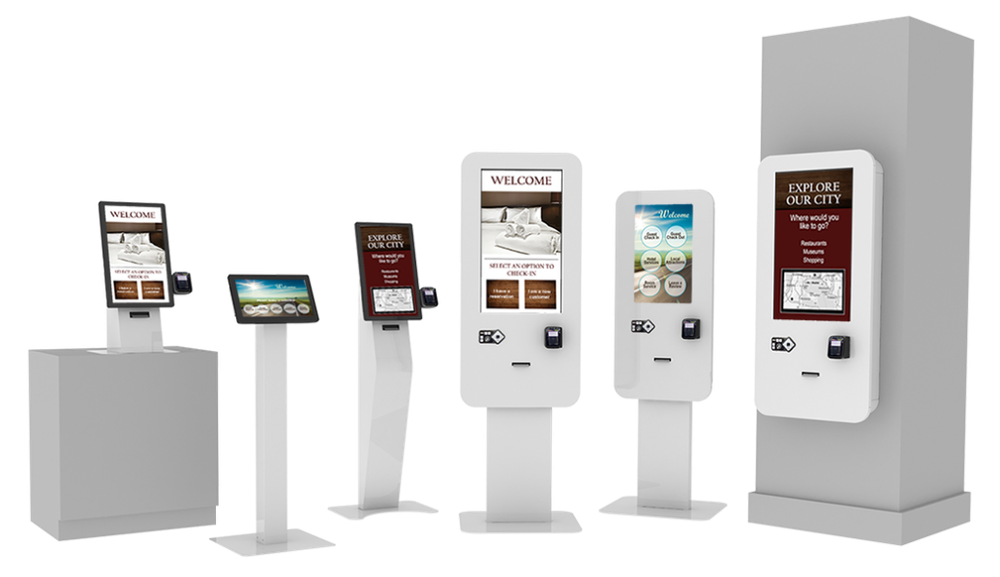Definition of Kiosk Marketing
Kiosk marketing refers to using interactive, self-service booths or stands, often placed in strategic locations such as malls, airports, or events. These kiosks allow users to access information, engage with a brand, or purchase directly using touch-screen technology. This form of marketing utilizes digital interfaces to create an interactive and convenient experience for the consumer, often to promote products, services, or brand awareness.
Key Takeaways
- Kiosk marketing bridges the gap between digital and physical shopping experiences by providing interactive, self-service touchpoints for customers.
- Effective kiosk marketing strategies engage customers through targeted messages, captivating content, and streamlined user interfaces for higher sales conversions and brand advocacy.
- Successful kiosk marketing implementation involves careful planning, including strategic placement, consistent software updates, and regular performance analysis to optimize results and meet customer demands.
The Market Size is Growing Fast
Research from Polaris: Market Research Analysis shows Kiosk marketing is growing rapidly. In 2021, the market size was 29 billion USD. 

Importance of Kiosk Marketing
Kiosk marketing is important in digital marketing because it bridges the gap between online and offline channels, enhancing customer experience and brand engagement.
By utilizing strategically placed interactive kiosks, businesses can provide customers with targeted, immersive content, as well as personalized and real-time offers that cater to their needs.
These kiosks not only provide convenience and accessibility to customers, but also enable businesses to collect valuable data on user behavior, preferences, and demographics.
In turn, this data can be used to optimize marketing strategies, improve customer satisfaction, and drive overall business growth.
Kiosk marketing, therefore, plays a significant role in creating a seamless, omnichannel experience that fosters stronger customer relationships and boosts marketing effectiveness.
Explanation
Kiosk marketing is vital in shaping customer experiences and elevating brand engagement in today’s digital landscape. At its core, kiosk marketing refers to the use of interactive, self-service digital kiosks that provide information and facilitate transactions for customers. These kiosks are placed strategically, such as shopping malls, waiting areas, and transportation hubs, to optimize user accessibility.
Kiosk marketing primarily enhances consumer convenience, streamlines processes, and provides advertisers with opportunities to reach out to potential customers in targeted, engaging ways. One key use of kiosk marketing is augmenting the customer journey through personalized promotions, wayfinding assistance, and detailed product information. By incorporating kiosk marketing into a brand’s digital strategy, businesses can foster a connection with their audience while harnessing the power of data-driven insights.
This helps deliver relevant, timely messaging and customized experiences to capture user interest and boost sales. Furthermore, kiosk marketing allows for the efficient management of queue systems, ensuring shorter waiting times and fostering customer satisfaction. Overall, kiosk marketing serves as an effective bridge between the physical and digital realms of consumer engagement, offering businesses a unique opportunity to enhance their marketing efforts and drive tangible results.
Examples of Kiosk Marketing


- Digital Information Kiosks: In shopping malls, airports, and tourist areas, digital information kiosks are often placed to help visitors find their way around and discover nearby services and attractions. These kiosks often display targeted advertisements for nearby businesses or products based on users’ location and their interactions with the kiosk, such as a restaurant ad in a food court or a promotion for a nearby hotel.
- Self-Service Point of Sale Kiosks: Many retail stores and fast-food restaurants employ self-service point of sale kiosks to streamline the purchasing experience for customers. These kiosks allow users to browse available products, place orders, and make payments, all while being exposed to carefully-placed branding and promotional content. For example, McDonald’s uses self-order kiosks that not only streamline customers’ ordering process but also increase opportunities for upselling and cross-selling.
- Event and Tradeshow Kiosks: Companies often use kiosk marketing to engage with their target audience during events and tradeshows. These kiosks can help gather contact information, provide product demonstrations, and showcase multimedia content relevant to their products or services. For example, a technology company might use a kiosk to demonstrate its latest software or hardware development, while an auto manufacturing company might use kiosks to showcase new car features and allow attendees to test drive its latest models virtually.
Kiosk Marketing FAQ
What is kiosk marketing?
Kiosk marketing is a form of advertising or promotion that utilizes interactive, self-contained devices called kiosks. These kiosks typically serve as marketing displays, informational materials, and other interactive tools to engage customers in retail environments and public spaces.
What are the benefits of kiosk marketing?
Kiosk marketing is an effective way to improve customer engagement, provide useful information, and enhance the overall customer experience. It allows businesses to reach customers in a unique and interactive way, gather valuable insights and data, and promote products and services to a targeted audience.
What are some examples of kiosk marketing?
Examples of kiosk marketing include interactive product displays, digital catalogs, customer surveys, wayfinding systems, and touch screen menus. Kiosks can also be used for self-checkout, ticket sales, and myriad other applications that provide value and convenience to both businesses and customers.
How much does kiosk marketing cost?
The cost of kiosk marketing varies depending on factors such as the number of kiosks, hardware and software requirements, and customization needs. Some businesses choose to purchase kiosks outright, while others may opt for a subscription or leasing model. It’s important to evaluate the potential return on investment and develop a budget to determine the most cost-effective solution for your specific marketing goals and objectives.
How do I implement kiosk marketing for my business?
To implement kiosk marketing for your business, identify your goals and objectives. Determine what kiosk system best aligns with your needs and research vendors offering the desired features and capabilities. Evaluate the costs and benefits of different kiosk systems and make an informed decision based on your budget and marketing strategy.
Related Digital Marketing Terms
- Interactive Kiosks
- Touchscreen Display
- Self-service Technology
- Customer Engagement
- Location-based Marketing
Sources for More Information
- Kiosk Marketing Association (KMA): https://kma.global/
- Interactive Customer Experience (ICX) Association: https://www.icxa.org/
- Digital Signage Federation (DSF): https://www.digitalsignagefederation.org/about-us/
- Nielsen Report on Self-Service Kiosks: https://www.chicagobooth.edu/research/kilts/research-data/nielseniq (This report may require a purchase)
- Statista: Kiosk Market Statistics: https://www.statista.com/statistics/1017116/worldwide-interactive-kiosk-market/


